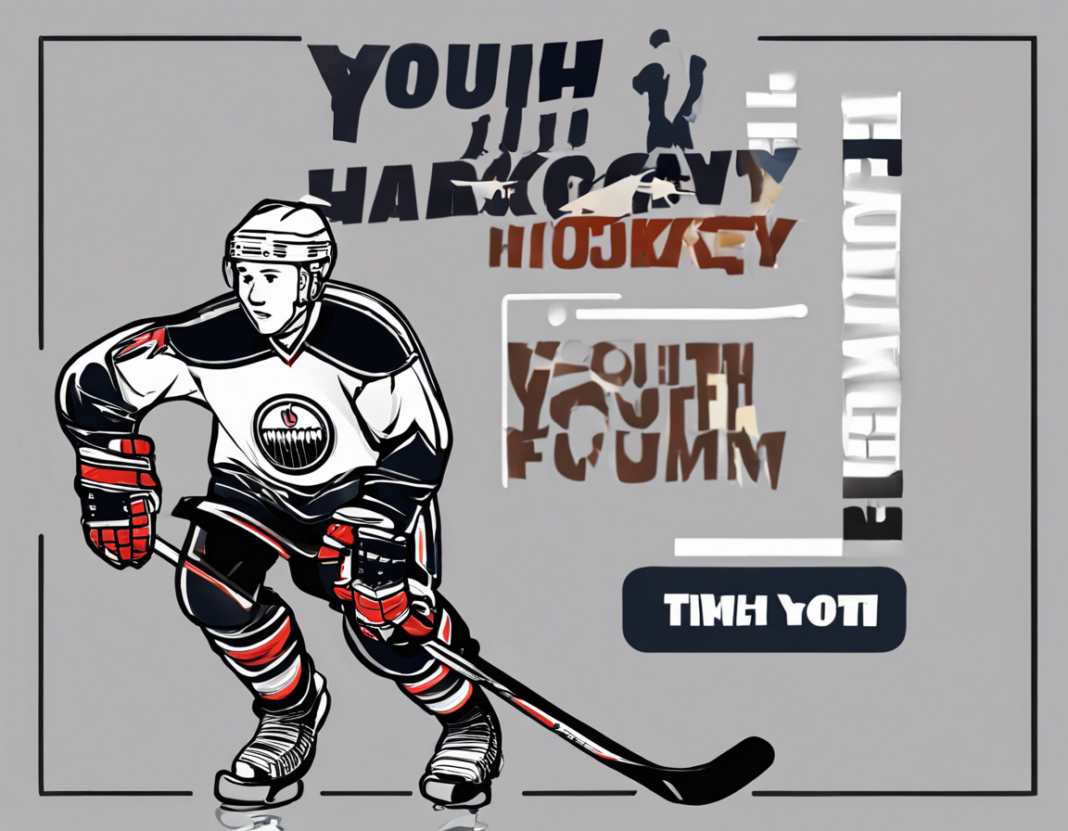Are you a parent, coach, or player involved in youth hockey and looking to unlock the secrets to success? Look no further! In this comprehensive guide, we will delve into the world of youth hockey and provide you with valuable insights, tips, and strategies to help you excel in this highly competitive sport.
The Importance of Youth Hockey
Youth hockey is not just a sport – it is a way of life for many families. It teaches young athletes important life skills such as teamwork, discipline, perseverance, and leadership. Moreover, it promotes physical fitness and instills a sense of camaraderie and sportsmanship among players.
Choosing the Right Program
When starting out in youth hockey, it is crucial to choose the right program that suits your child’s age, skill level, and commitment. Look for reputable leagues or clubs that prioritize skill development, sportsmanship, and player safety. Consider factors such as coaching staff, practice facilities, game schedules, and financial commitment before making a decision.
Skill Development Strategies
To succeed in youth hockey, players must focus on developing key skills such as skating, stickhandling, shooting, passing, and teamwork. Engage in regular on-ice and off-ice training sessions to improve these skills. Work with experienced coaches who can provide constructive feedback and guidance to help you reach your full potential.
Nutrition and Fitness
Nutrition and fitness play a crucial role in a youth hockey player’s performance and overall well-being. Encourage healthy eating habits, adequate hydration, and proper rest to fuel your body for intense training sessions and games. Incorporate strength training, cardiovascular workouts, and flexibility exercises into your fitness routine to build endurance, speed, and agility on the ice.
Mental Toughness and Resilience
Youth hockey can be a highly competitive and demanding sport, requiring mental toughness and resilience to overcome challenges and setbacks. Teach young athletes the importance of positivity, goal setting, focus, and perseverance in the face of adversity. Cultivate a growth mindset that embraces failure as a learning opportunity and motivates players to keep pushing their limits.
Parental Support and Involvement
Parents play a crucial role in the success of youth hockey players. Show support for your child’s passion for the sport, attend games and practices, and maintain open communication with coaches and team members. Encourage a healthy balance between hockey and other aspects of your child’s life, and provide emotional support during wins and losses.
Building a Strong Support Network
Success in youth hockey is not just about individual talent – it also depends on the strength of the support network around you. Surround yourself with positive influences such as coaches, teammates, mentors, and family members who believe in your potential and are committed to helping you succeed. Collaboration and teamwork both on and off the ice are key to achieving your goals in youth hockey.
Frequently Asked Questions (FAQs)
- What age should my child start playing youth hockey?
-
Most youth hockey programs accept children as young as 4 or 5 years old, depending on the league’s guidelines.
-
How can I find a reputable youth hockey program in my area?
-
Research local leagues, clubs, and training facilities, ask for recommendations from other parents or coaches, and visit open houses or trial sessions to evaluate the program.
-
What equipment does my child need for youth hockey?
-
Essential equipment includes skates, a helmet, shoulder pads, elbow pads, gloves, shin guards, a stick, and a mouthguard. Make sure all gear fits properly for safety and comfort.
-
How can I support my child’s mental health and well-being in youth hockey?
-
Encourage open communication, provide emotional support, help manage expectations, and promote a healthy work-life-hockey balance to reduce stress and burnout.
-
Are there scholarship opportunities for youth hockey players?
-
Some programs, leagues, schools, or organizations offer scholarships, grants, or financial aid for talented young athletes who demonstrate financial need and dedication to the sport.
-
How can I help my child balance academics and youth hockey commitments?
-
Create a schedule that prioritizes schoolwork, hockey practice, games, and downtime. Encourage time management skills, effective study habits, and communication with teachers to maintain academic success.
-
What are the long-term benefits of participating in youth hockey?
-
Youth hockey fosters physical fitness, social skills, teamwork, discipline, perseverance, goal setting, time management, leadership, and a lifelong love for the sport.
-
How can I ensure my child’s safety on the ice during games and practices?
-
Emphasize the importance of wearing proper protective gear, following safety guidelines, learning proper techniques, respecting opponents, and reporting any injuries or concerns to coaches or medical staff.
-
What are some off-ice training exercises that can benefit youth hockey players?
-
Off-ice training exercises can include strength training, cardio workouts, agility drills, balance exercises, stretching, yoga, mental focus exercises, and nutrition planning to enhance performance on the ice.
-
How can I help my child set realistic goals and track progress in youth hockey?
- Encourage goal setting that is specific, measurable, achievable, relevant, and time-bound (SMART), and provide regular feedback, encouragement, and support to help your child stay motivated and focused on continuous improvement.
In conclusion, youth hockey offers a wealth of opportunities for young athletes to grow, learn, and excel both on and off the ice. By focusing on skill development, nutrition, mental resilience, parental support, teamwork, and building a strong support network, players can unlock their full potential and achieve success in this dynamic and challenging sport. Remember, it’s not just about winning games – it’s about building character, camaraderie, and a lifelong passion for the game of hockey.

